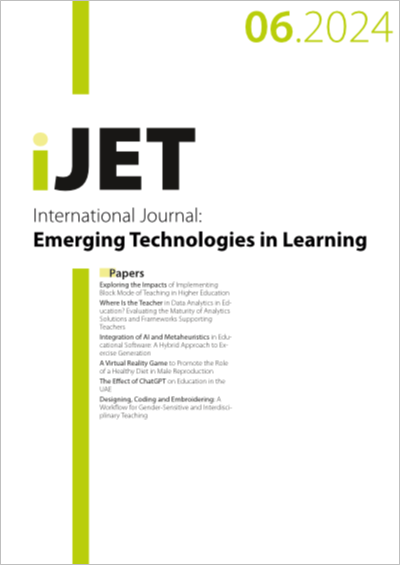The Effect of ChatGPT on Education in the UAE
DOI:
https://doi.org/10.3991/ijet.v19i06.49799Keywords:
ChatGPT, Educators, Learning, Cheating, InnovativeAbstract
This study examines the impact of ChatGPT on undergraduate students’ learning. The study utilizes a survey to gather authentic data from a sample of 316 bachelor students from 15 universities across the UAE. The survey comprises 22 dimensions categorized into four constructs related to ChatGPT usage, benefits, drawbacks, and the types of questions ChatGPT can address. A statistical analysis was conducted to explore three primary hypotheses. The analysis involved using Excel and R software to perform one-sample t-tests, two-sample t-tests, ANOVA, and correlation. The findings indicate that students’ use of ChatGPT for various assignments is still infrequent, despite their familiarity with it. This suggests that educators have not yet integrated ChatGPT into assignments and view it more as a threat than an opportunity. Students acknowledge both the advantages and disadvantages of ChatGPT. However, students in medical fields expressed more criticism towards ChatGPT compared to students in engineering, computer science, and business disciplines. Additionally, male and female students hold similar perceptions, except for two dimensions. The results also suggest that educators should pose questions that necessitate personal arguments, experiences, and critical thinking to deter academic dishonesty.
Downloads
Published
How to Cite
Issue
Section
License
Copyright (c) 2024 Mohammed Alnahhal, Hamda Alali, Reema Alshamsi

This work is licensed under a Creative Commons Attribution 4.0 International License.



